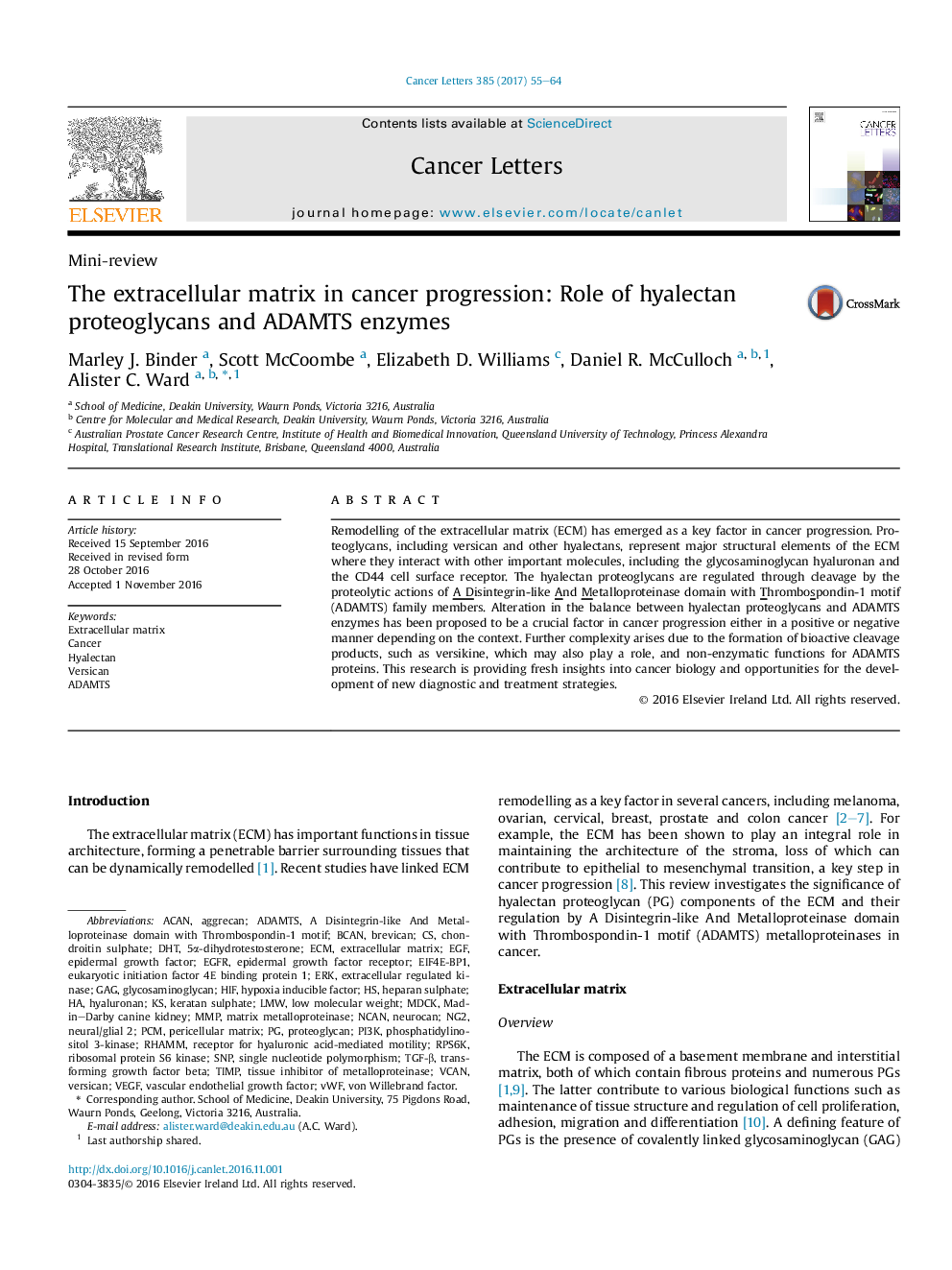| Article ID | Journal | Published Year | Pages | File Type |
|---|---|---|---|---|
| 5525706 | Cancer Letters | 2017 | 10 Pages |
â¢Extracellular matrix (ECM) remodelling is an emerging area of cancer biology.â¢Proteoglycans such as versican are key ECM components implicated in cancer progression.â¢ADAMTS metalloproteinases cleave proteoglycans and typically act as tumour suppressors.â¢Additional layers of complexity due to alternate isoforms, non-enzymatic functions and cell context.
Remodelling of the extracellular matrix (ECM) has emerged as a key factor in cancer progression. Proteoglycans, including versican and other hyalectans, represent major structural elements of the ECM where they interact with other important molecules, including the glycosaminoglycan hyaluronan and the CD44 cell surface receptor. The hyalectan proteoglycans are regulated through cleavage by the proteolytic actions of A Disintegrin-like And Metalloproteinase domain with Thrombospondin-1 motif (ADAMTS) family members. Alteration in the balance between hyalectan proteoglycans and ADAMTS enzymes has been proposed to be a crucial factor in cancer progression either in a positive or negative manner depending on the context. Further complexity arises due to the formation of bioactive cleavage products, such as versikine, which may also play a role, and non-enzymatic functions for ADAMTS proteins. This research is providing fresh insights into cancer biology and opportunities for the development of new diagnostic and treatment strategies.
